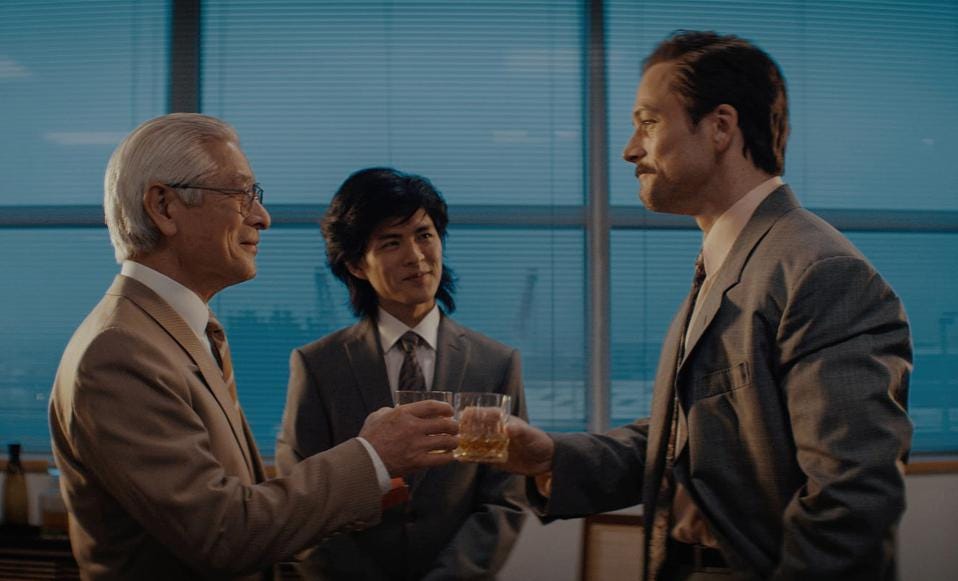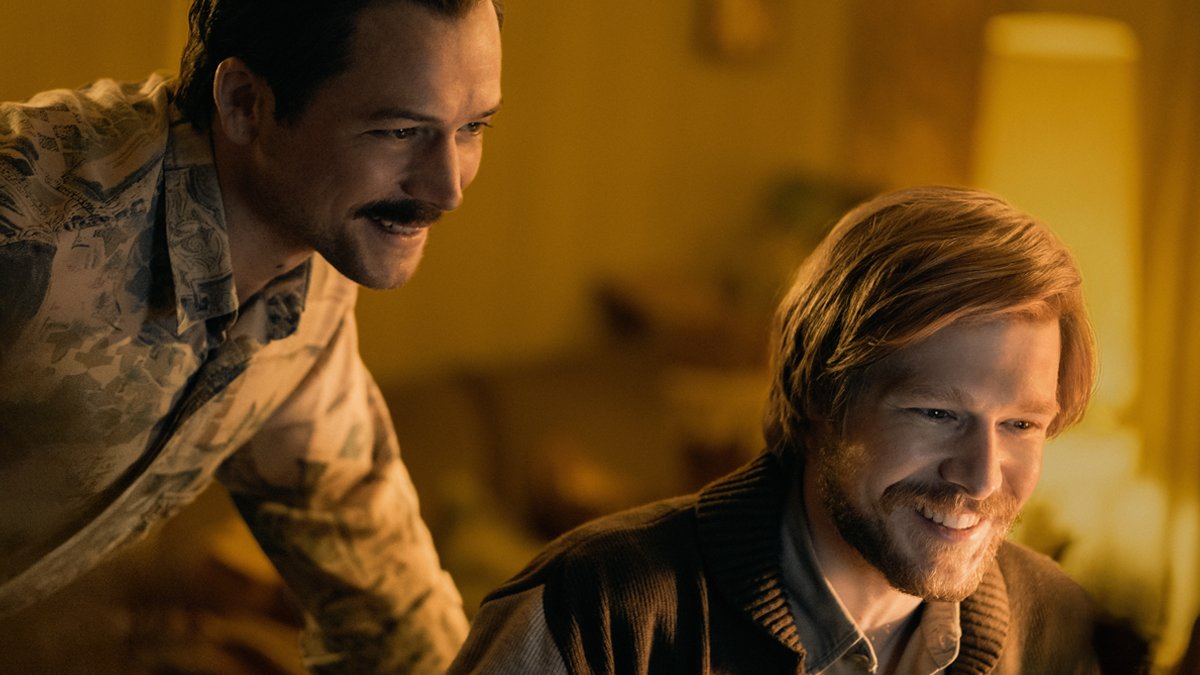You might have to be an expert in international contract law to fully disentangle Tetris. Perhaps like the game itself, the movie builds up an intricate puzzle of shapes and players as it traces the fight to release the addictive new video game in what countries, under what circumstances, on what platforms. As a result, it takes its own shape as video game history via the lens of a thriller – albeit a thriller built on arcane clauses in legal documents.
Is this the right way to bring Tetris to the big screen? (Or the small screen, seeing as how it’s exclusive to AppleTV+.) Given the lack of a story in the game itself, perhaps it was the only way. In fact, the film has sort of the same trailblazing quality as the game itself – which coincided with the release of Nintendo’s Game Boy, an addictive new game for an addictive new device – in that it may be the first movie about a video game. Not the first adaptation of a video game, of course – the cinematic landscape is lousy with those. Rather, the first movie about a game itself, focusing on its place in the cultural and economic landscape instead of the mechanics of the game in question.
The problem, then, is that Tetris as a game is essentially a MacGuffin, a prized object all the characters want, rather than an essential thematic component to the film we’re watching. Director Jon S. Baird attempts to compensate for this by occasionally rendering the transitions between scenes in 8-bit graphics, a charming touch that never loses its appeal. (The low-res graphics of 1980s video games are a bottomless wellspring for Gen X nostalgia.)
Only rarely, though, does the film explore the reason the game was so addictive. In selling its appeal to a prospective financier, Taron Egerton’s Henk Rogers explains “I played Tetris for five minutes, and I still see falling shapes in my dreams.” It’s what some of us called “Tetris-itis,” and it may have gripped the afflicted more than any interplay of pixel-based images ever has. If you ever fell down a Tetris rabbit hole for two weeks, you know the impact it had on your productivity, possibly even your sanity, during that period.
To disentangle the players involved in this saga is almost as difficult as disentangling the legalese in those documents, but our viewer surrogate is Rogers, the American CEO of a small games company called Bullet-Proof Software. He’s struck out on his attempt to sell his game Go, which has endangered his career as well as the financial stability of his Tokyo-based family. At a particular consumer electronics show, he comes across this new game with falling bricks of various shapes and sizes, and knows the presenters hold distribution in most markets on most platforms. However, he suspects the Japanese rights are up for grabs, and sees the opportunity to pounce.
Japan is not the primary home to the events of Tetris, however. That’s Russia, still known as the Soviet Union back in 1988. See, the game’s inventor is Russian programmer Alexey Pajitnov (Nikita Efremov), whose computer didn’t even have the proper graphical interface, meaning the falling blocks were originally comprised of square brackets manipulated into various configurations. He circulated the game as an underground obsession for his friends, and as the network grew, the government sensed the potential and wanted a piece of the action. So various Russian functionaries are going to be one of Rogers’ biggest stumbling blocks, and don’t be surprised to see none other than Mikhail Gorbachev make an appearance.
The most recognisable face in the cast other than Egerton’s is that of Toby Jones, who plays a Brit game licenser trying to get his grubby little mitts on the game, one of several Brits who include father-son media magnates. Take the characters introduced so far and multiply them by three, and you’ve got a collection of all the players wrangling over definitions of the difference between a computer and an arcade game, and double-crossing each other to get a leg up on the release and the fortune that might accompany it. And in this capitalist frenzy you’ve also got a critique of life under communism.
Watching Tetris is akin to watching one of those episodes of the show Silicon Valley where the characters undergo multiple reversals of fortune within a single 30 minutes of television. Only, the writers of that show drew it up in such a way that you actually grasped the stakes from moment to moment, and were tickled by how it all went down. It’s not possible to get that sort of lucid comprehension of the peaks and valleys of Tetris, though the film does keep up its momentum well enough. There’s enough kineticism – movement within the scene, movement between locations, and liveliness of performance – that Tetris is never boring. It may, however, become quite frustrating, depending on your appetite for its many narrative circumlocutions.
Unsure if Tetris is too complicated for its own good? Don’t take my word for it. Wikipedia can be a good place to go after you’ve finished a movie where you might have been falling asleep a bit, where you hope the crowd-sourced plot synopsis will connect any dots you might have missed. That won’t work for Tetris. The plot synopsis itself is a gargantuan 1700 words. As a point of reference, when all is said and done, the review you are currently reading will end up around a thousand.
In a way, Tetris might be the sort of bespoke film made for people raised on the narrative podcast craze. If what we can glean from it is any indication of the true events – and there’s no reason to doubt that it is – then this is enough material for a ten-episode season of a podcast, and perhaps that’s the sort of venue in which it would have its greatest opportunity to flourish. At least then, they’d have the chance to occasionally set aside all the surplus plot density for a 15-minute digression on the throes of Tetris-itis.
Tetris is currently playing on AppleTV+.



